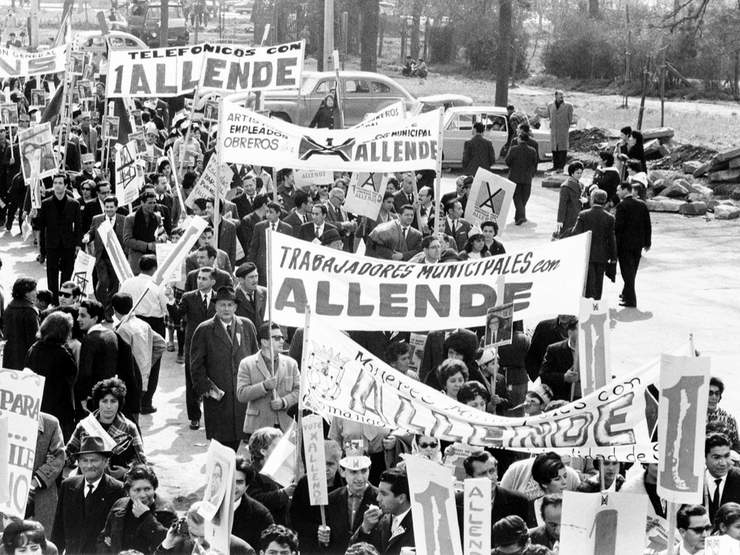
Beginning during the presidential period in Argentina, Salvador Allende and other presidential candidates, such as his predecessor, Eduardo Frei Montalva would institute liberal reforms aiming to stabilize and modernize the country. Though this was the case, those considered radical, such as Allende, would not find immediate success. In 1954, Allende was expelled temporarily from the Chilean socialist party, and would run at every election from then until his victory in 1970. As he continued to run, he garnered support among fellow socialists, communists, and other Chilean radicals. This culminated in the formation of the Popular Unity party where all groups banded into a victorious political coalition that saw Allende elected as president of Chile. After his victory, Allende began instituting radical reforms that found him at odds with the United States. A serious offense to US interests in the region was the nationalization of US copper mines in Chile. In addition to this, Allende advocated for the maintenance and expansion of civil liberties and worker’s rights. Allende garnered even further worker’s support for his policies at the cost of rampant inflation and failing international credit after an attempt to redistribute income. The side effects of his policies also manifested in decreased exports, food shortages, domestic unrest, and a decrease in foreign investment. It was through this instability that despite his relection in 1973, Allende would be overthrown and killed by general Agusto Pinochet that same year, ending the presidential era and ushering in the Pinochet dictatorship.
This photo taken by John M. Wallace encapsulates an earlier moment in Allende’s political career. Because of neoliberal economic policies, workers, women, and native people had been left by the wayside in favor of unequal economic stimulation. A series of presidencies tried to amend this with less radical reform, but these groups felt most represented by Allende, as he seemed unafraid to challenge the Chilean elite and the specter of the US government. As clearly shown in this photo, by 1964, Allende had become an established political candidate, representative of growing dissolution with neoliberal policies in Latin America as a whole. Though his presidency would be short with little lasting affects, the popularity he did garner is a notable condemnation by the Chilean people of the neoliberal economic exploitation of the 20th century.
Works Cited
“Salvador Allende.” Encyclopædia Britannica. Encyclopædia Britannica, inc. Accessed April 9, 2021. https://www.britannica.com/biography/Salvador-Allende.
Image Link:
https://www.loc.gov/pictures/item/2004666289/
Thumbnail Link: https://en.wikipedia.org/wiki/1970_Chilean_presidential_election#/media/File:Salvador_Allende_Gossens_(cropped).jpg
